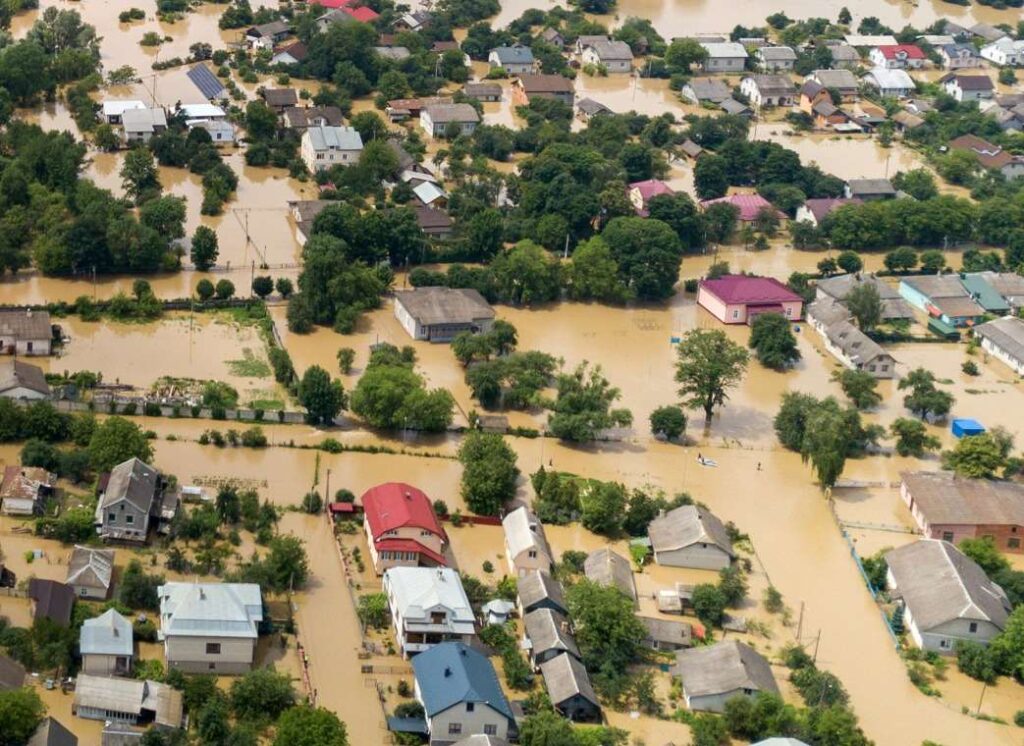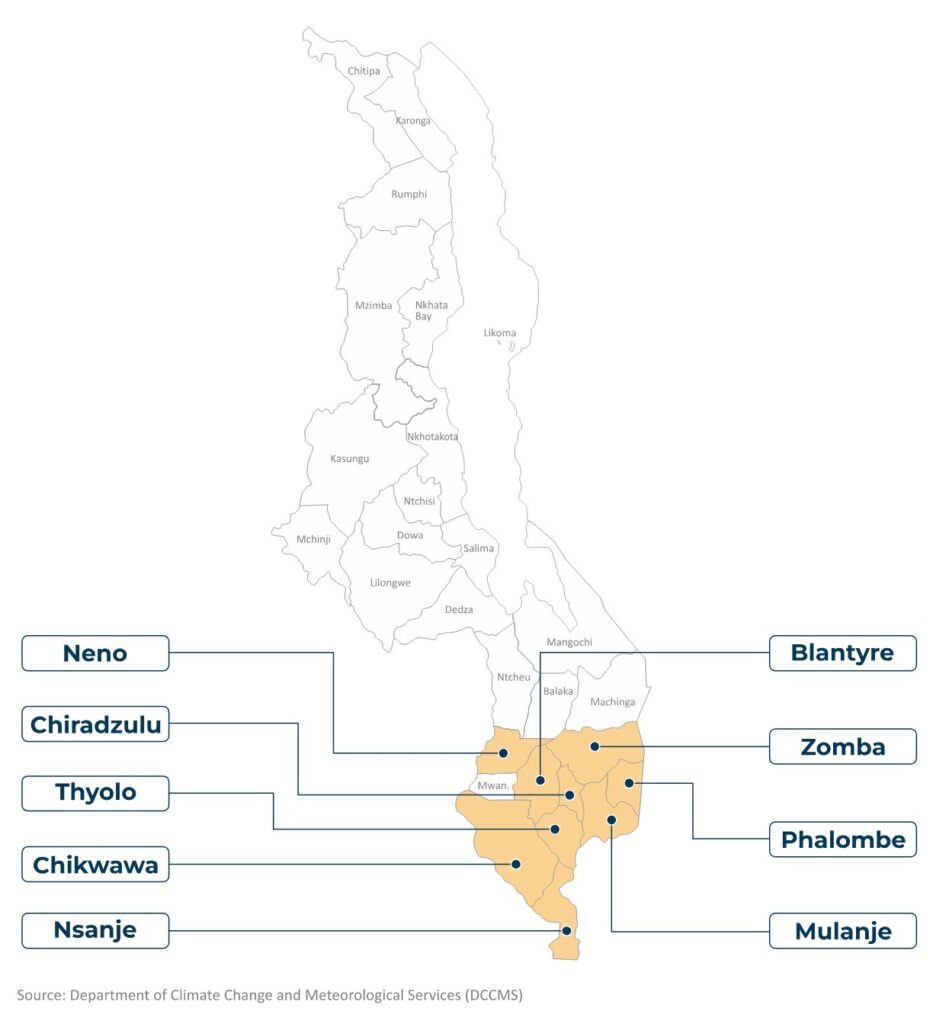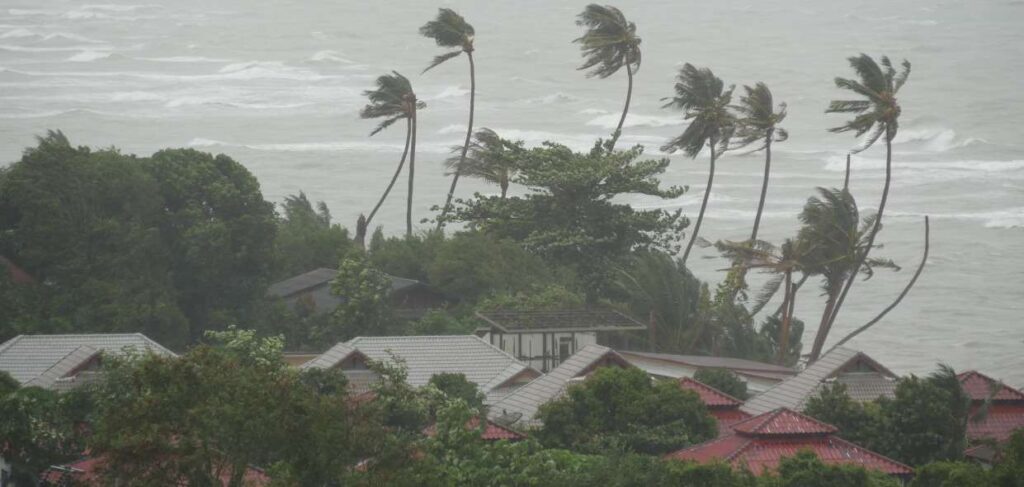Tropical Storm Freddy holds the record for most accumulated cyclone energy (ACE), a measure based on the wind strength over its lifetime. According to the World Meteorological Organization, Freddy has generated about as much accumulated cyclone energy as an average full North Atlantic hurricane season. It has gone through the most cycles of weakening and re-intensifying and is also considered as the longest-lived cyclone in history.
The socioeconomic impacts of the storms have been severe such as the national energy grids were crippled, flash flooding was widespread across several parts of the world, approximately 345,000 people affected by the heavy rains, floods, and landslides.
Timeline of Events
- On 30 January, the Australian Bureau of Meteorology (BoM) monitored a developing tropical low in the Timor Sea.
- The BoM designated Tropical Low 13U on 04 February, and later that day upgraded it to a Category 1 tropical cyclone, naming it Freddy. On the same day, the Joint Typhoon Warning Center (JTWC) classified the system as Tropical Cyclone 11S.
- The BoM subsequently upgraded Freddy into a Category 2 tropical cyclone. Freddy attained Category 3 cyclone.
- Freddy developed off the coast of Australia, crossed the entire South Indian Ocean and travelled more than 8,000 km (4,970 miles) to make landfall in Madagascar and Mozambique in late February.
- Storm Freddy first developed on 06 February and made its second landfall on the coast of Mozambique on 11 March, 34 days later. Storm Freddy affected more than 171,000 people in Mozambique, resulting in 27 casualties, with 10 in Mozambique and 17 in Madagascar around 25 February. Later the storm started moving to Malawi causing major disruptions in the region.

Most affected areas in Malawi

The areas have experienced persistent torrential rainfall exceeding 150mm and strong winds gusts.

Impact
- Several disruptions including landfall and heavy rainfall have been reported across parts of southern Malawi following the passage of Tropical Storm Freddy, which has affected almost 10 districts.
- Malawi’s Department of Climate Change and Meteorological Services (DCCMS) has also recorded a daily rainfall total of around 15 cm (6 inches) across southern parts of the country.
- As of Tuesday (21 March) evening, the total number of recovered bodies was 507, the number of missing persons was 537, and the number of injured was 1,332. The number of displaced people has increased to 553, 614; the total number of camps accommodating the displaced people is 543.
- Medical experts warned on Wednesday (15 March) of a heightened risk of Cholera and other water-borne diarrheal diseases across Malawi post widespread flooding incidents in Malawi.
- The storm damaged Malawi’s power supply infrastructure, with most parts of the country experiencing prolonged power outages, while the national electricity company announced that it was unable to get its hydro-power plant running as it had been filled with debris.
- Densely populated poorer communities, living in brick and mud houses, have been reported to be the hardest-hit due to the cyclone, while the collapse of roads and bridges had hampered rescue operations.
- All houses at Mtauchira area under Traditional Authority Likoswe in Chiradzulu district have been destroyed due to floods, with reports of a landslide from Chambe mountain affecting the area. Several people were missing, while the injured were taken to either Nguludi Mission Hospital or Queen Elizabeth Central Hospital. Two camps have been set up at Nguludi Girls Primary and Montfort Primary schools for those affected by the cyclone.
- The President of Malawi Dr. Lazarus Chakwera has also declared a State of Disaster in the region.

Recommendations:
Workplace
For Business Organizations
- Advised to move essential items (important documents, machines, etc) to an upper floor.
- Advised to keep doors and windows closed so that floodwaters or wind do not pose anydannageto the interiors.
- Advised to protect windows using adhesive tape to prevent glass doors or windows from shattering amid strong gusts.
- Advised to undertake flexible working arrangements and have adequate power backups ready.
- Advised to turn off power during thunderstorms in order to avoid short circuit.
- Advised to install mosquito repellents and arrangefor sanitizer dispensers.
For Individuals
- It is advised to prepare for flood and landslides in adherence to government approved measures. Avoid low-lying and waterlogging-prone areas. Check Maps, follow traffic updates, be alert while driving, and have alternative routes mapped before commencing travel.
- Stock up on essentials such as medications, dryfood,sanitizer, etc.
- In case the option of filtered water is not available, use few drops of chlorine to the water before drinking.
- Be cautious of frayed wires, electrical lines, and tree limbs.
- Avoid travelling in the vicinity of riverbanks.
- In case driving to low-lying areas, avoid hard accelerations and brakes; maintain a steady momentum and do not restart engine while the vehicle is stalled in water.
- For further safe driving guidelines, refer to MitKat’s Special Advisory on Safety Measuresfor Vehicles During Heavy Rainfall. (hyperlink).
- Keep an extra set of fresh clothes in office.
- As power outage is likely to continue, advised to ensure that emergency lights and torches are working properly. Keep few extra cells aswell.
- Adhere by evacuation orders or other guidelines as issued by local authorities.
- Turn off power and gas connections before evacuating residential area.

General
- Advised to monitor advisories issued by the Malawi Department of Disaster management on twitter (https://twitter.com/DisasterDept?s=20).
- It is advised to move to higher ground immediately and follow evacuation orders when issued by the department on their official website at https://www.metmalawi.gov.mw/.
- Advised to seek immediate medical assistance in the event of experiencing physical discomfort.
- Advised to follow boil water protocols by heating water to boiling temperature before consumption and household requirements.
- Follow advisories issued by the Malawi Health Ministry on twitter (https://twitter.com/health_malawi?s=20).
- Advised to contact the DoDMA at 265 (0) 999 043 228, (0) 884 572 844 for disaster related assistance. In case of an emergency, it is advised to contact the National Emergency number 997.
- Further advised to visit the official Department of Climate Change and Meteorological Services facebook page (https://www.facebook.com/ MALAWIWEATHERUPDATE) to avail regular updates regarding the storm.




